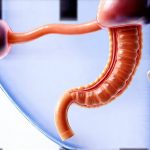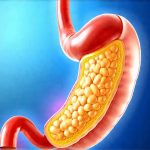Acid reflux, commonly experienced as heartburn, is often attributed to excess stomach acid. Many over-the-counter remedies focus on neutralizing this perceived surplus, leading people to believe the problem lies in having too much acidity. However, a growing body of research and clinical observation suggests that, paradoxically, acid reflux can sometimes be caused by a lack of stomach acid – a condition known as hypochlorhydria. This seemingly counterintuitive idea challenges conventional wisdom and requires a deeper understanding of the digestive process and its intricate balance. It’s important to remember that digestion isn’t simply about breaking down food; it’s a complex, multi-stage operation involving precise chemical reactions facilitated by adequate levels of various acids, enzymes, and hormones. When any part of this system is off-kilter, symptoms like acid reflux can arise, even if the initial assumption points to excessive acidity.
The digestive process begins in the mouth with mechanical breakdown and enzyme activity, but truly efficient digestion relies heavily on stomach acid. Hydrochloric acid (HCl), produced by parietal cells in the stomach lining, isn’t just about dissolving food; it’s crucial for activating pepsin, an enzyme necessary for protein breakdown. It also sterilizes food, killing harmful bacteria and pathogens that enter with our meals. Furthermore, stomach acidity plays a vital role in nutrient absorption, particularly of essential vitamins and minerals like iron, vitamin B12, and calcium. A deficiency in stomach acid disrupts this entire sequence, leading to incomplete digestion, potential nutritional deficiencies, and – surprisingly – the possibility of acid reflux symptoms. This is where the connection between low stomach acid and heartburn becomes clearer: without sufficient acidity, food lingers longer in the stomach, creating a breeding ground for fermentation and gas production. If you suspect low iron could be impacting your gut health, explore https://vitagastro.com/can-low-iron-be-a-sign-of-gut-damage/ for more information.
The Role of Hypochlorhydria in Reflux
Hypochlorhydria refers to a condition characterized by abnormally low levels of hydrochloric acid in the stomach. It’s often subtle in its onset and can go undiagnosed for years because symptoms are frequently misattributed to excess acid. Several factors can contribute to hypochlorhydria, including aging (acid production naturally declines with age), chronic stress, long-term use of proton pump inhibitors (PPIs) or antacids – which ironically suppress acid production further – Helicobacter pylori infection, and certain autoimmune conditions. It’s also becoming increasingly recognized that dietary factors play a role, such as consistent consumption of highly processed foods lacking essential nutrients needed for HCl production. The implications extend beyond just digestive discomfort; prolonged hypochlorhydria can lead to malabsorption issues, impacting overall health and potentially increasing susceptibility to infections. Understanding past dieting habits and their potential effect on the gut is also important: https://vitagastro.com/can-gut-issues-be-a-result-of-past-dieting/.
The mechanism by which low stomach acid causes reflux is multifaceted. When food isn’t adequately broken down in the stomach due to insufficient acidity, it moves more slowly into the small intestine. This delayed gastric emptying increases pressure within the stomach, making it easier for contents to be forced back up into the esophagus – resulting in heartburn. Moreover, incomplete protein digestion can lead to the formation of partially digested proteins that irritate the esophageal lining. The lower esophageal sphincter (LES), a muscle that prevents stomach acid from flowing back upwards, relies on proper digestive function and acidity levels to remain tightly closed. A compromised digestive environment due to hypochlorhydria can weaken the LES’s ability to stay contracted, increasing the likelihood of reflux episodes. Consider if acid reflux could be linked to something other than excess acid: https://vitagastro.com/can-acid-reflux-be-linked-to-food-sensitivity/.
Finally, it’s crucial to understand that many people self-treat with antacids or PPIs for years without addressing the underlying cause of their symptoms. While these medications provide temporary relief, they simultaneously suppress acid production, potentially exacerbating hypochlorhydria and creating a vicious cycle. This highlights the importance of identifying the root cause of reflux rather than simply masking the symptoms. It’s also worth considering if gut symptoms could be related to other lifestyle factors: https://vitagastro.com/can-gut-symptoms-be-a-sign-of-burnout/.
Diagnosing Low Stomach Acid
Diagnosing hypochlorhydria can be challenging because standard medical testing often focuses on detecting high acidity. Traditional tests like gastric acid secretion (GAS) tests are rarely performed and may not accurately reflect overall stomach acid levels, especially considering that acid production fluctuates throughout the day. However, several approaches can help assess the possibility of low stomach acid:
- The Self-Digestion Test: This is a relatively simple at-home test. It involves consuming a small amount of bicarbonate of soda (baking soda) mixed with water and observing whether it causes burping or gas within 20 minutes. If there’s little to no reaction, it may suggest low stomach acid. However, this isn’t conclusive and should not replace professional medical evaluation.
- Symptom Evaluation: A thorough review of symptoms can provide clues. Symptoms suggestive of hypochlorhydria include bloating, belching, nausea after meals, undigested food in stool, nutrient deficiencies (iron, B12, calcium), and a feeling of fullness shortly after starting to eat.
- Comprehensive Digestive Stool Analysis (CDSA): This test assesses digestive function, including pancreatic enzyme output and gut microbiome balance, which can offer indirect insights into stomach acid levels. While it doesn’t directly measure HCl production, imbalances in the gut ecosystem often correlate with compromised digestion.
It’s vital to consult a healthcare professional for accurate diagnosis and guidance. They may recommend further testing or explore alternative causes of reflux symptoms before concluding that hypochlorhydria is the root cause. Self-diagnosis and self-treatment can be detrimental, particularly when it comes to digestive health. Understanding how reactions might actually signal positive changes in your gut: https://vitagastro.com/can-reactions-be-a-sign-of-gut-healing/.
Restoring Stomach Acid Production Naturally
If hypochlorhydria is suspected, several natural strategies can help restore stomach acid production:
- Dietary Changes: Focus on consuming whole, unprocessed foods rich in nutrients essential for HCl production. This includes protein-rich foods (to provide amino acids needed for pepsin activation), zinc-rich foods (oysters, beef, pumpkin seeds), and B vitamins. Avoiding processed foods, sugary drinks, and excessive alcohol can also reduce digestive stress.
- Stress Management: Chronic stress significantly impacts digestion. Implementing stress-reducing techniques like meditation, yoga, deep breathing exercises, or spending time in nature can improve overall digestive function.
- Digestive Bitters: These herbal preparations stimulate the production of stomach acid and digestive enzymes. They are typically taken a few minutes before meals. However, individuals with certain medical conditions (e.g., gallbladder issues) should consult a healthcare professional before using them.
- Apple Cider Vinegar (ACV): Some people find that consuming a small amount of diluted ACV before meals can help stimulate acid production. However, this is controversial and shouldn’t be used as a long-term solution without medical advice, especially if there’s existing esophageal irritation or ulcers.
- Betaine Hydrochloride (HCl) with Pepsin: This supplement provides hydrochloric acid and pepsin to aid digestion. It should only be taken under the guidance of a healthcare professional, as it can potentially worsen symptoms in individuals with certain conditions like ulcers or GERD.
Restoring stomach acid production isn’t always about simply increasing acidity; it’s about optimizing digestive function as a whole. Addressing underlying nutritional deficiencies, managing stress levels, and adopting a healthy lifestyle are crucial components of this process. Are gut issues impacting your health due to past dieting?: https://vitagastro.com/can-gut-issues-be-a-result-of-past-dieting/.
The Importance of Holistic Assessment & Professional Guidance
Acid reflux is rarely a simple issue with a single cause. Often, it’s a symptom of a more complex interplay between diet, lifestyle, stress, gut health, and underlying medical conditions. Attributing it solely to excess acid can lead to inappropriate treatment and potentially exacerbate the problem. A holistic assessment that considers all these factors is essential for accurate diagnosis and effective management. This includes evaluating dietary habits, stress levels, medication use, and any existing medical conditions.
The role of a healthcare professional cannot be overstated. They can perform appropriate testing, rule out other potential causes of reflux (such as hiatal hernia or esophageal motility disorders), and develop a personalized treatment plan based on individual needs. Self-treating with supplements or medications without professional guidance is risky and may mask underlying issues that require attention. Consider if gut issues could be caused by environmental factors: https://vitagastro.com/can-gut-issues-be-caused-by-pesticides/.
Ultimately, understanding the possibility of acid reflux being caused by low stomach acid challenges conventional wisdom and emphasizes the importance of looking beyond surface symptoms to address the root cause of digestive discomfort. It’s a reminder that our bodies are intricate systems where balance is key, and restoring optimal digestive function requires a comprehensive and informed approach. Are travel constipation issues related to underlying intolerances?: https://vitagastro.com/can-travel-constipation-be-a-sign-of-intolerance/.


















